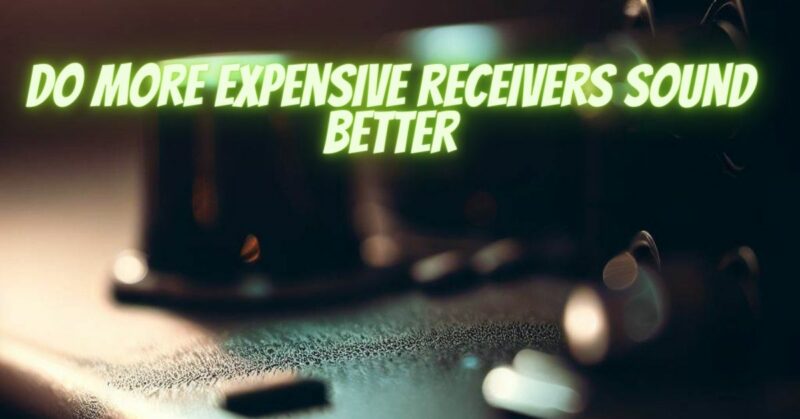When considering a stereo receiver purchase, you might wonder whether spending more money on a higher-priced receiver will result in better sound quality. While price can be an indicator of certain features and build quality, it is not a guarantee that a more expensive stereo receiver will always sound better. In this article, we will explore the factors that can influence sound quality and help you understand the relationship between price and audio performance when it comes to stereo receivers.
- Build Quality and Components: Higher-priced stereo receivers often feature better build quality and components. Premium models may use higher-grade internal components, such as capacitors, resistors, and transformers, which can contribute to improved sound performance. Additionally, more attention may be given to the layout and shielding of circuitry to minimize interference and enhance overall audio quality.
- Power and Amplification: Stereo receivers with higher price tags may offer more powerful amplification, allowing for greater control and dynamic range. This can result in cleaner and more impactful sound reproduction, especially at higher volume levels. However, it’s important to note that the power requirements of your speakers and the size of your listening space should be considered when evaluating the need for more power.
- Features and Connectivity: More expensive stereo receivers often come with advanced features and connectivity options. These features may include higher-resolution audio support, network streaming capabilities, multi-room audio functionality, and more robust equalization and room correction systems. While these features do not directly affect sound quality, they can enhance your overall listening experience and provide greater flexibility in optimizing your system’s performance.
- Subjective Listening Experience: Sound quality is a subjective experience, and what sounds better to one person may not be the same for another. The perception of audio quality can vary based on personal preferences, listening habits, and individual hearing capabilities. It is important to audition receivers and compare them in your own listening environment to determine which one best suits your preferences.
- Matching with Speakers: The interaction between the stereo receiver and your speakers is crucial in determining overall sound quality. It’s essential to pair your speakers with a compatible receiver that can properly drive them. Consider the impedance and sensitivity ratings of your speakers and ensure that the receiver can provide sufficient power and match the speaker’s requirements.
- Price vs. Performance Ratio: While higher-priced receivers may offer certain enhancements in build quality, power, and features, there are diminishing returns as you move up the price range. The law of diminishing returns suggests that at a certain point, the incremental increase in audio performance may not justify the significant increase in cost. It’s essential to find a balance between your budget and the level of performance you desire.
Conclusion:
While more expensive stereo receivers can often provide improved build quality, amplification, and additional features, it does not guarantee that they will always sound better. The subjective nature of sound perception, the compatibility with your speakers, and the balance between price and performance should be considered when selecting a stereo receiver. Ultimately, it’s important to audition receivers, compare their specifications, and determine which one best meets your audio preferences, budget, and specific needs.

